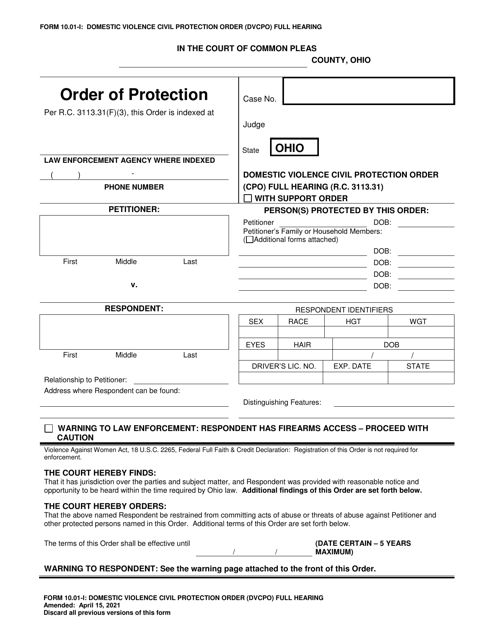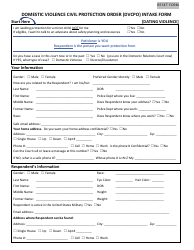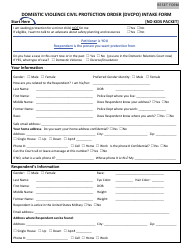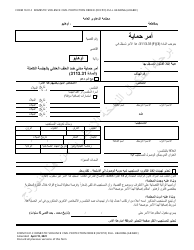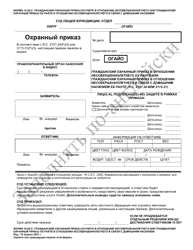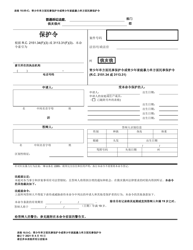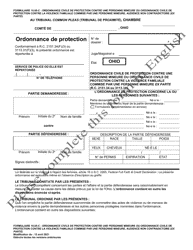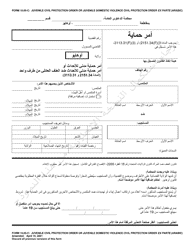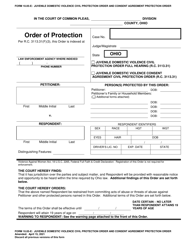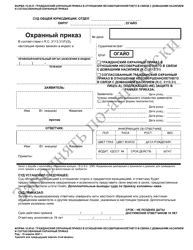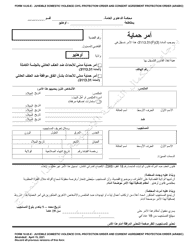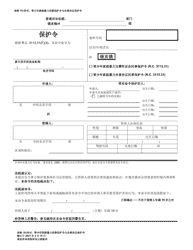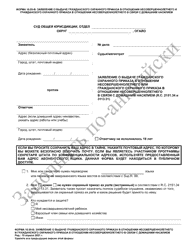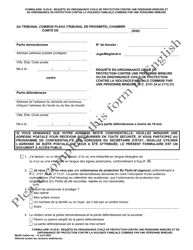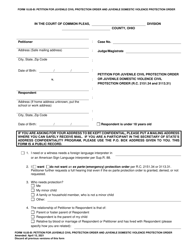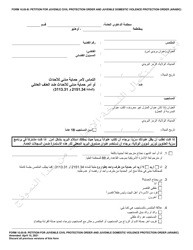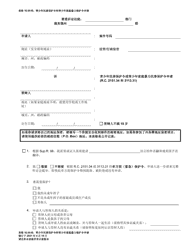Form 10.01-I Domestic Violence Civil Protection Order (Dvcpo) Full Hearing - Ohio
What Is Form 10.01-I?
This is a legal form that was released by the Ohio Court of Common Pleas - a government authority operating within Ohio. As of today, no separate filing guidelines for the form are provided by the issuing department.
FAQ
Q: What is Form 10.01-I?
A: Form 10.01-I is a document used for a full hearing related to a Domestic ViolenceCivil Protection Order (DVCPO) in Ohio.
Q: What is a Domestic Violence Civil Protection Order (DVCPO)?
A: A Domestic Violence Civil Protection Order (DVCPO) is a legal order that provides protection to victims of domestic violence in Ohio.
Q: What is a full hearing?
A: A full hearing is a formal court proceeding where both parties present evidence and arguments related to the Domestic Violence Civil Protection Order (DVCPO).
Q: How is Form 10.01-I used in a full hearing?
A: Form 10.01-I is used to document and present information and evidence during a full hearing for the Domestic Violence Civil Protection Order (DVCPO).
Q: Who can file Form 10.01-I?
A: Either the petitioner (the person seeking the protection order) or the respondent (the person the order is against) can file Form 10.01-I.
Q: What information is required in Form 10.01-I?
A: Form 10.01-I asks for information about the petitioner, respondent, and details of the alleged domestic violence incident.
Q: Are there any fees for filing Form 10.01-I?
A: Typically, there are no fees for filing Form 10.01-I. However, there may be other court-related fees depending on the specific circumstances.
Q: What happens after filing Form 10.01-I?
A: After filing Form 10.01-I, a hearing date will be set, and both the petitioner and the respondent will be notified of the hearing.
Q: What is the purpose of the full hearing for a DVCPO?
A: The purpose of the full hearing is to allow both parties to present their case and for the court to determine whether a Domestic Violence Civil Protection Order (DVCPO) should be granted.
Form Details:
- Released on April 15, 2021;
- The latest edition provided by the Ohio Court of Common Pleas;
- Easy to use and ready to print;
- Available in Spanish;
- Quick to customize;
- Compatible with most PDF-viewing applications;
- Fill out the form in our online filing application.
Download a fillable version of Form 10.01-I by clicking the link below or browse more documents and templates provided by the Ohio Court of Common Pleas.
